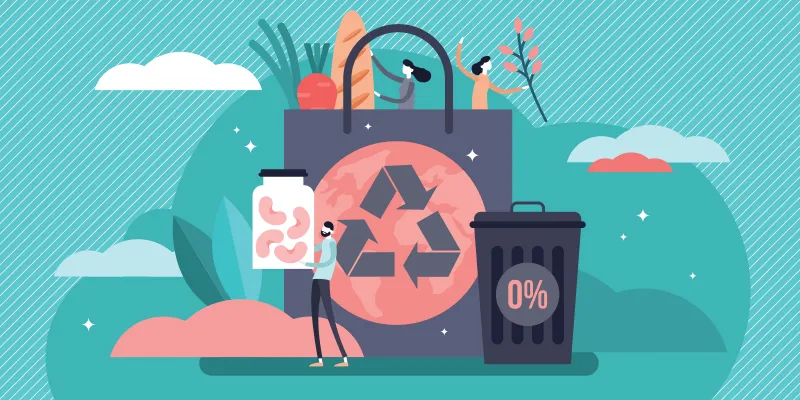Students and a sustainable campus: Initiatives that students can take to foster sustainable living
University campuses are likely to produce significantly more garbage than other forms of residence. Here are a few strategies to infuse a little green mindedness into daily student life
Sustainability, at its core, is a social vision, a goal that prioritises productive work, adequate comfort and security, a clean and secure environment, decent health, and potential for personal development. A sustainability mindset is a way of life and education can play a key role in environmental awareness. It emphasises the impact of individuals and the community on nature and the climate.
Sustainable living is becoming popular on college and university campuses as it improves the quality of life not only on campus but in the surrounding areas as well. It's a visionary approach to energy, economy, community well-being and technological advancement. Sustainable living is more likely to offer a dynamic, compassionate, imaginative, creative and resilient environment to live, work and study in, on a campus that takes it seriously right from master planning to academic programs and co-curricular activities.
For most students, safeguarding the environment may not be the first thing that comes to mind. The truth is that the local environment is impacted wherever people live. This is no different for college and university campuses. In fact, because of the large population they serve, university campuses are likely to produce significantly more garbage than other forms of residence. A few strategies to infuse a little green mindedness into daily student life, which can assist to create a more sustainable campus, are given below:

Sustainable living is becoming popular on college and university campuses as it improves the quality of life.
Discourage use of disposable products
Disposable products like plastic cutlery, crockery, and anything that’s used once and thrown away, are among the foremost culprits when it comes to pollution, as most plastic disposables are not biodegradable. This means they will last for centuries in landfills before decomposing. Switch to metal or plant-based plates, cutlery, and cups. You live more sustainably and save money in the long run. Switch from bottled water and carry your own water bottle when you go out. To motivate everyone to participate in a more sustainable campus, several institutions have even prohibited the sale of bottled water on campus.
Buying secondhand products, buying locally, and reselling
First, look for products that have been previously owned. This involves giving anything with a long-life expectancy a new lease on life. Second, rather than ordering online, buy locally if possible. This benefits the local economy and has a lower carbon footprint than shipping from elsewhere. Third, when you move out, resell, or donate everything you don't need. At the end of each year, some colleges organise collections of unwanted items that can subsequently be transferred to new students.
Make the switch to digital
There was a time when there was no alternative to notes, textbooks, and folders full of lecturers' handouts. While plenty of these are still circulating around university campuses, there is a clear shift toward doing activities more digitally, and the gadgets we carry with us on a day-to-day basis play a big role in this.
Use technology to limit the quantity of paper you use whenever feasible. Write notes on your computer, tablet or mobile and print documents only when absolutely necessary. Always remember to backup your data daily. Encourage classmates and staff to become digital savvy to help promote a sustainable campus.
A cycling drive
Cars pollute the environment. Riding a bicycle is one of the most environmentally friendly modes of local transportation because it just consumes the energy that your legs expend. Cycling also helps in maintaining your fitness and wellbeing.
Recycle
Finally, recycling as much as possible is likely the simplest method to create a more sustainable campus. Many college campuses include recycling facilities for paper, plastic, electronics, and textiles, so determine where they are situated. Encourage your classmates to do the same, and if your campus lacks a well-developed recycling programme, take the initiative to start one. It'll make a tremendous difference and look fantastic on your resume!
Edited by Diya Koshy George
(Disclaimer: The views and opinions expressed in this article are those of the author and do not necessarily reflect the views of YourStory.)







